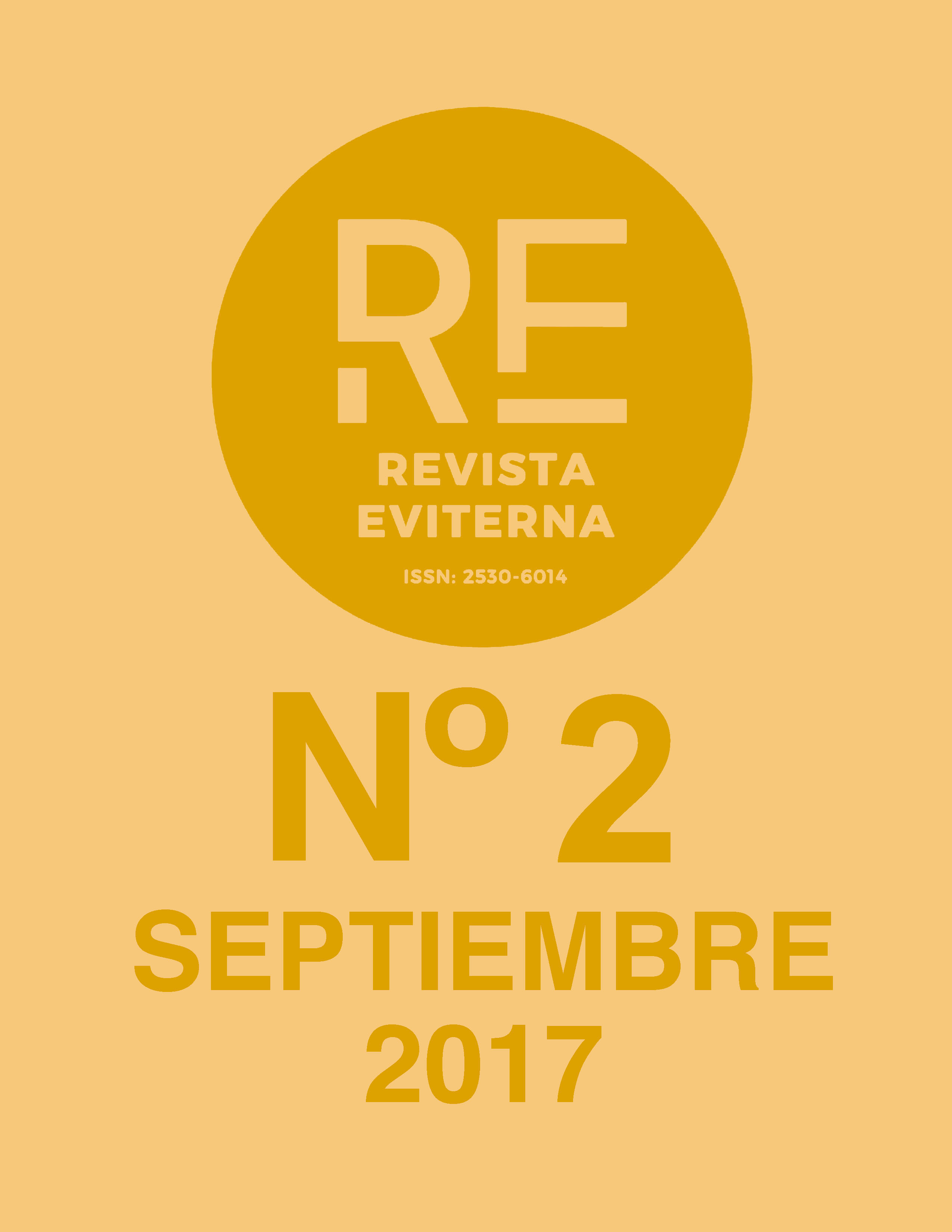Genesis and aesthetics in the chacelian lyric: transmutation of signifiers and Apollonian classicism in "Apollo"
DOI:
https://doi.org/10.24310/Eviternare.v0i2.8103Keywords:
Literature; spanish poetry; lyrical poetry; Rosa ChacelAbstract
The main aim this paper tries to reach is to review Spanish female writer Rosa Chacel’s lyrical poem “Apolo” in order to analyze the way she finds to incorporate Apollo Greek god’s sculpture into her piece of work, which comes to add a new point of view when reading the poem itself because, so far, it has just been said that Chacel uses Greek god’s characteristics to write her piece of art and not his sculpture, that is the idea this paper defends.
Downloads
Metrics
Publication Facts
Reviewer profiles N/A
Author statements
Indexed in
-
—
- Academic society
- N/A
- Publisher
- Universidad de Málaga
References
CHACEL, Rosa (1992). Poesía (1931-1991). Tusquets: Barcelona
CONTE, Rafael (1993). “Rosa Chacel y las Vanguardias” en LATRE, María Pilar Martínez, Actas del congreso en homenaje a Rosa Chacel: ponencias y comunicaciones. Universidad de la Rioja: Logroño, pág. 22.
GRAVE, Crescenciano (1998). El pensar trágico: Un ensayo sobre Nietzsche. UNAM: México. GRIMAL, Pierre (2008 [1951]). Diccionario de mitología griega y romana. Grupo Planeta:
Barcelona.
JANÉS, Clara (2010). María Zambrano. Desde la sombra llameante. Ediciones Siruela: Madrid.
LANZ RIVERA, Juan José (2007). “La poesía española ante la feria” en La poesía durante la transición y la generación de la democracia” en PASTOR, Juan (ed.). Devenir Ensayo: Madrid, pág. 233.
OSBORNE, Raquel (1987). “Simmel y la "cultura femenina" (las múltiples lecturas de unos viejos textos)” en Reis: Revista española de investigaciones sociológicas, No 40, págs. 97-112.
PARAÍSO DE LEAL, Isabel (1994). “Lo apolíneo y lo dionisiaco en la poesía de Rosa Chacel” en LATRE, María Pilar, Actas del congreso en homenaje a Rosa Chacel: ponencias y comunicaciones. Universidad de la Rioja: Logroño, págs. 33 y 43.
PÉREZ CHACEL, Carlos y Antonio Piedra (2004). Rosa Chacel. Obra completa: Autobiografías. Fundación Jorge Guillén: Valladolid.
QUESADA MARCO, Sebastián (1997). Diccionario de civilización y culturas españolas. Ediciones Istmo: Madrid.
Downloads
Published
How to Cite
Issue
Section
License
All the contents published in Revista Eviterna are subject to the Creative Commons Reconocimento-NoComercia-Compartirigual 4.0 license, the full text of which can be found at <http://creativecommons.org/licenses/by-nc-sa/4.0>
They may be copied, used, disseminated, transmitted and publicly exposed, provided that:
The authorship and original source of your publication (Journal, editorial and URL of the work) are cited.
They are not used for commercial purposes.
The existence and specifications of this use license are mentioned.

Copyright is of two kinds: moral rights and patrimonial rights. Moral rights are perpetual, inalienable, inalienable, inalienable, inalienable and imprescriptible prerogatives.
In accordance with copyright legislation, Revista Eviterna recognizes and respects the moral rights of the authors, as well as the ownership of the economic right, which will be transferred to the University of Malaga for dissemination in open access.
The economic rights refer to the benefits obtained by the use or disclosure of the works. Revista Eviterna is published in open access and is exclusively authorized to carry out or authorize by any means the use, distribution, disclosure, reproduction, adaptation, translation or transformation of the work.
It is the responsibility of the authors to obtain the necessary permissions of the images that are subject to copyright.







12.png)



